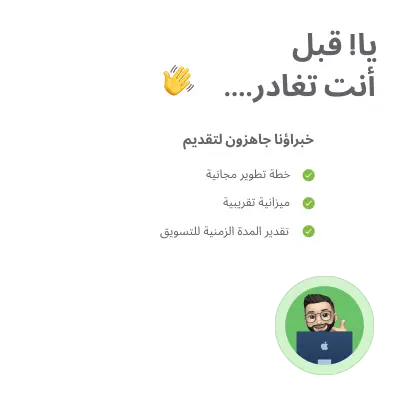Do you need help keeping up with all the remote work, hybrid setups, or the latest IT solutions? Boosting productivity for the modern workplace is indeed such a huge task. But as more businesses participate in digital transformation, IT keeps shaping the future of work and now it has become the only way to stay ahead.
In this blog, we’ll explore key future work trends, from the role of cloud computing and collaboration tools to cybersecurity and employee experience.
So, are you ready to take action and want to shape your space into a modern workplace?
How IT Will Be Defining the Future of Modern Workspace?
When we talk about the idea of a modern workspace, we can see it has continuously changed over the past few years. From simple work that can be handled by labor in the industry to specific tasks based on knowledge in this digital age, we have to be ready and frequently adopt information and new challenges faced in the IT industry.
Technological advancements and digital transformation have entirely tilted the work system with innovations such as cloud computing, collaboration tools, etc.
What is The Role of IT in Shaping the Future of Work?
When we talk about IT, it can be considered the most important aspect of today’s digital transformation. It makes changes globally by enabling remote working and hybrid setups flexibility regardless of workplace.
Simple tools like Microsoft Teams and Slacks facilitate day-to-day connectivity to ensure productivity. Including cybersecurity plays an important role in protecting your data and increasing your digital workspace for smooth operational efficiency.
By utilizing IT, businesses can enhance employee experience, improve productivity, and remain competitive. Whether through automation or from the latest software development company, IT is shaping the path forward in the evolving workplace.
Key Trends Shaping the Future of Work
Here’s a closer look at these transformative shifts:
1. Remote and Hybrid Work Models
With the gradual shift of remote work in the workplace in recent years, connectivity tools like Zoom, MS Teams and Slack have become very popular.
IT infrastructure and cloud computing, which secure the network, play a vital role in enabling remote employees to access tools and data anytime or anywhere. All these models not only improve flexibility for employees but can also increase talent pools for organizations, reinforcing the importance of robust IT solutions.
2. Artificial Intelligence and Automation
3. The Gig Economy
IT has sparked the development of the gig economy, enabling the likes of Uber, Upwork and Fiverr to link workforces to global opportunities. The platforms provide flexibility and autonomy to workers and allow businesses to access on-demand talent. That said, issues pertaining to job security and benefits, among others, still need revision, with IT solutions providers needing to come up with new-age solutions that can help improve the overall employee experience for gig workers.
4. Cybersecurity and Data Privacy
Cybersecurity is becoming popular because securing data is really needed in a day-to-day routine where every person is working.
Any organization that intends to protect its information assets needs to install firewall devices to avoid harmful intrusion.
5. Upskilling and Reskilling because of Technology
The advancement of technology means that workers in various sectors will have to gain new competence. Online courses from platforms like Coursera and LinkedIn Learning make upgrading skills more practicable, while AI-based adaptive learning designs personalize the skill acquisition process. It helps employees acclimatize to trends in the new normal, thereby increasing their productivity and worth in the workplace.
Difficulties and Risks in the Future Workplace
However, while technology is changing the future of work, it does come with its own set of difficulties:
Proceeding with the shifts: Continuous and regular digital adoption has the potential to overwhelm businesses and people.
Digital exhaustion: Employees working remotely may have a thin line between work and personal life, which can lead to relapses.
Concerns about Cybersecurity: The threat of cyber-attacks has increased as organizations continue to operate in distributed locations, and thus, sophisticated IT systems are needed.
Concerns surrounding Ethics: AI interpretation, data ethics, and diversity concerns need to be identified.
To address all of these issues, organizations need to collaborate with technology experts, implement new ideas that are still people-oriented, maintain a positive employee experience, and achieve continuous growth.
Predictions and Opportunities for the Future of Work
The future of work promises exciting developments. Here’s a glimpse into what’s ahead:
1. What the Workplace Will Look Like in Five to Ten Years
Life in the organization is only going to get even better. Here is a teaser of what is in store:
- Remote and Hybrid Work: The increase of flexibility in work location with the use of collaboration platforms and IT integration components.
- AI Integration: The inclusion of machine intelligence into workflows will be regarded as a ‘competitive advantage’ in the future.
2. Recent Technologies that are Likely to Transform the Modern Business Model
- Quantum Computing: A powerful tool that opens new ways to analyze information insights and process decisions hastily.
- Blockchain: Facilitates secure currencies, data transfer and other monetary activities, especially within HR practices, finance and supply chain.
3. Opportunities for Businesses and Employees
- For Businesses: Technology in parts would help businesses operate to minimize wastage and appreciate new ideas.
- For Employees: Adopt creative learning to learn to wear multiple hats while focusing on innovation and being agile in oneself.
By reading these trends in the work of the future, businesses and employees will both be able to adapt to a tech-oriented society that is becoming increasingly so through interaction with other people.
Conclusion
New-generation solutions, including cloud services, AI, and collaboration tools, are dramatically transforming the workplace through better remote working, increased productivity, and the optimization of the employee experience. Businesses that take the change as an opportunity to develop and transform, with investments in upskilling, are most likely to succeed.
At DeliveryDevs, our solutions help organizations make smooth transitions. Are you prepared for a future work life? Get in touch with DeliveryDevs right now, and let’s create together a smarter, better connected workplace!






